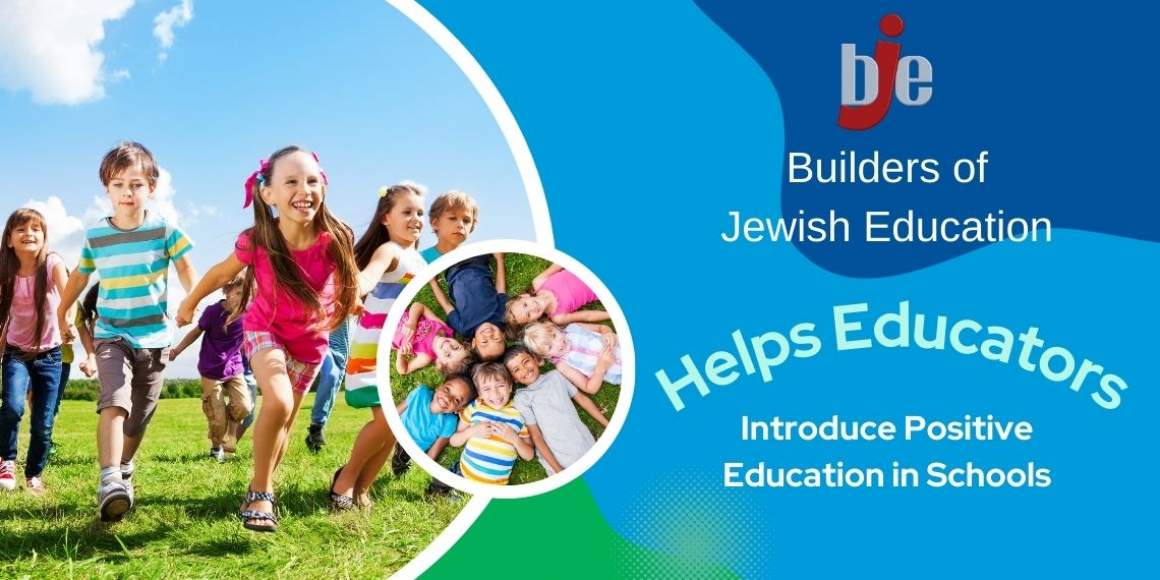
BJE’s First Positive Education Cohort Now in Action
Fourteen participants from the first cohort of BJE’s Positive Education Initiative have moved into the implementation phase of the program. Having completed their certification in Positive Education, these educators now have access to material to become trainers of Positive Education themselves. The Day School educators, comprised of mostly classroom teachers and guidance counselors, are directly implementing the content into their daily instruction. The Religious School and ECC educators, comprised of school administrators, are using this year to introduce their staff to Positive Education, focusing on three key dimensions: Strengths, Resilience, and Mindset.
Randee Bishoff, Director of Education at Temple Akiba, shared how she has implemented what she learned through the BJE program. “Over the last several months, our staff has begun to explore thriving through the lens of Jewish thought. We have begun by focusing on the Jewish value and spiritual practice of gratitude. Judaism places considerable importance upon regularly giving thanks and expressing appreciation. Regular gratitude exercises have now become part of our classroom routine. Activities range from gratitude circles in the classroom, making cards thanking a friend, creating gratitude boards, having the children recite personal daily blessings of thanks, using Gratitude journals, and creating classroom rituals as a way of expressing gratitude. Small activities such as these have big results. The results have notably fostered more kindness, appreciation, and thoughtfulness within our ECC community. Seeing their work in action has encouraged our staff to continue delving into our learning as we slowly begin to implement more positive education into our school community.”
Rabbi Adam Schaffer, Director of the Jewish Learning Cooperative of Shomrei Torah Synagogue and the Sevran Center of Temple Aliyah, is also implementing Positive Education and said of the experience, “We are just beginning to implement elements of Positive Education that I learned in BJE's first cohort of the program. My goal is to help our students figure out not just the ancient rituals of Judaism, but how does being Jewish help them figure out what kind of people they want to be now and in the future.
The beauty of using Positive Judaism as a framework is that we don’t have to throw out what we’ve been studying, but rather we can use the same important Jewish texts but start to look at them in a different way. For example, to teach the concept of resiliency, we can still use the Torah stories we might have used in the past. Instead of focusing on the plot of the story, we might specifically ask students to identify where they see resiliency in the text and consider how that value impacted the story. They still know the basic elements of the text – just as they did when they were learning it for the plot, but now we are making that story something that has lessons that relate to their lives, instead of being something detached from their world.
Just coming out of the pandemic is its own project. Kids have both social and academic deficits that we are supporting them through. We hope that what we can teach kids about Positive Education will add to the tools they need to continue to emerge from all this challenging time.”
Schools in the first cohort included:
Early Childhood programs: Kehillat Israel, Wise School, Temple Akiba, Ohr Eliyahu, Ilan Ramon
Day Schools: VBS, Brawerman, Heschel, Harkham Hillel Hebrew Academy, Ilan Ramon
Religious Schools: Temple Ramat Zion, Kehillat Israel, Temple Menorah, Temple Aliyah, Los Angeles Hebrew High School
Cohort two of BJE’s Positive Education training and certification program is currently underway. For more information about the program, please contact Carly Rosenstein, Director, BJE Center for Excellence in Early Childhood Education & Special Projects, at [email protected].
